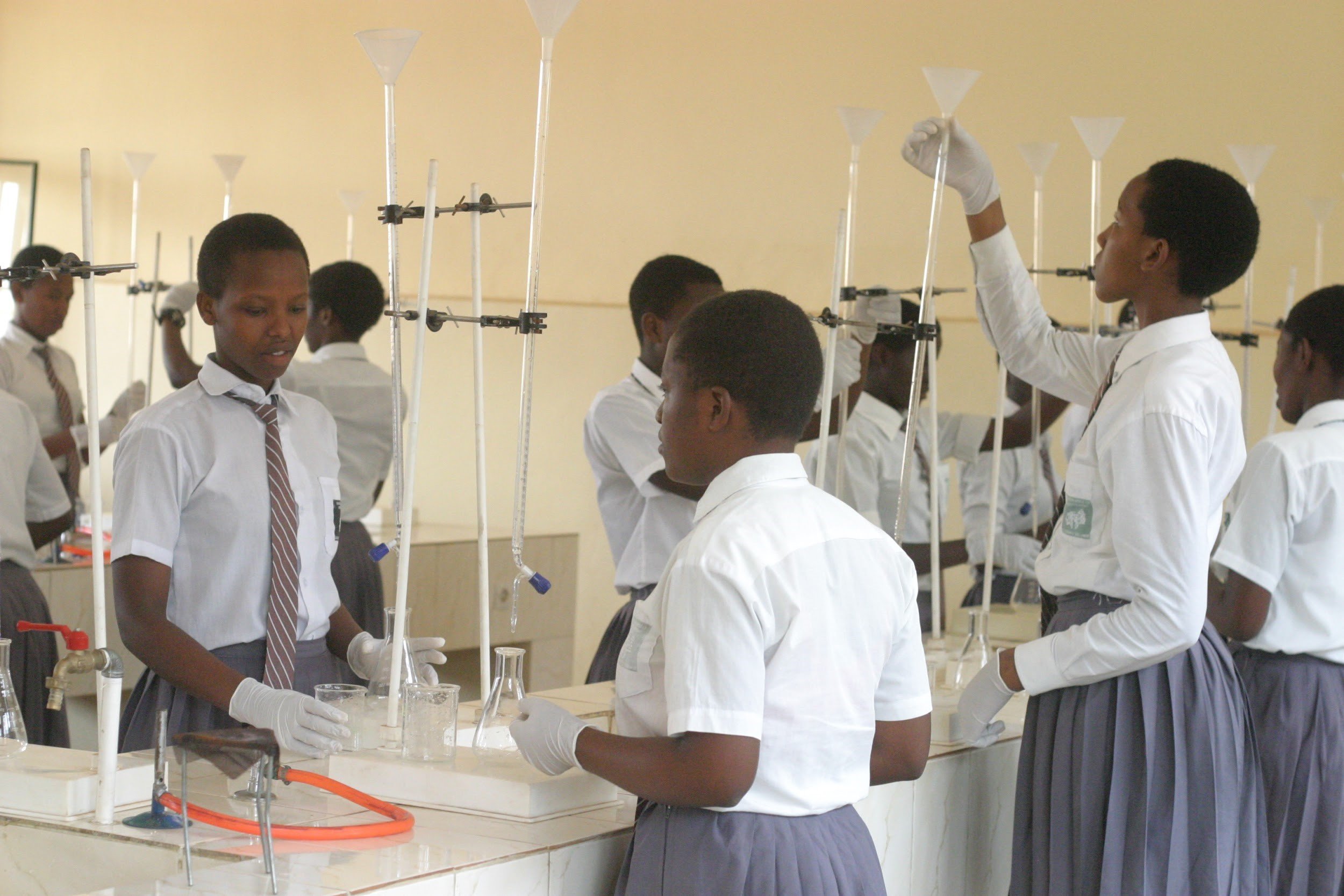
Leading the Way for the Next Generation of Female Scientists
Today, Africa faces a shortage of scientists, researchers, and students pursuing STEM fields, particularly among girls and young women. For each country and the continent as a whole to reach its full economic potential and long-term development success, achieving gender parity in science is critical.
I recently had the pleasure of traveling to Rwanda to talk to some of the young women enrolled in the Foundation’s Scholars Program. With journalists from Voice of America, Reuters and The New Times, I joined a group of the continent’s next-generation STEM leaders at FAWE Girls School in Gisozi, a suburb of Kigali. It was inspiring to see not only the tremendous impact that young women pursuing STEM education have on their local communities, but the vision each of them holds for their communities, countries and continent.

Dative Tuyisenge, a Scholar in the Program at AIMS Cameroon, in conversation with freelance journalist Chika Oduah.
Despite the shortage, there are many girls and women scientists currently pursuing STEM disciplines who are leading the way and carving a path for the next generation of female scientists, such as Mastercard Foundation Scholar Armanda Kouassi. With the support of a scholarship from the Foundation, Armanda attended the University of California, Berkeley and graduated in 2015 with a master’s in industrial engineering and operations research. Today, she continues to be a strong advocate for women in STEM.
“We African girls and women deserve to study science,” Armanda writes. “Science needs us. Africa is at a crossroads in its development where it will need innovators, inventors, scientists and engineers to face challenges like climate change, food insecurity and the spread of disease, issues which so often have a greater impact on women. We cannot think about development, especially in today’s world, without considering how we can leverage science and technology for progress.”
For girls like Armanda to pursue science, there needs to be high-quality STEM education available to them. Many of our educational partners place a strong emphasis on encouraging young women to pursue these disciplines, including the Forum for African Women Educationalists (FAWE), the African Institute for Mathematical Sciences and Ghana’s Ashesi University College.
Through programs supported by Ashesi, girls have the opportunity to be immersed in STEM, allowing students to explore multiple disciplines in the field and learn from role models in the industry. For some students, including Ophelia Tornyedzi, these opportunities uncover a passion for science. Ophelia will continue her studies at the University of Edinburgh in Scotland to further her education in engineering.

Beatrice Uwamahoro, a Scholar in the Program at AIMS Rwanda, in conversation with freelance journalist Pius Sawa.
Similarly, at FAWE Girls’ School, Linah Divine Icyezumutima is a secondary school Scholar studying physics, chemistry and mathematics, with the goal of becoming a pilot. As told to The New Times in Rwanda, her dream of flying airplanes began when she was a young girl: “When I was still young, I remember, I saw it fly in the skies. I was told that it was an animal. So I used to run and hide because I was terrified! But after I knew what it was, I loved watching it fly in the sky as a child. I always thought to myself, why can’t I be the one to fly that thing.”
Once girls complete their education, they are motivated to share what they learned with their communities, such as one Scholar who attended the African Leadership Academy and has founded her own school in Zimbabwe.
In addition to educational partners, support from local governments is crucial to ensure that high quality STEM education is incorporated into curriculums. One nation leading the way is Rwanda, where STEM education has been receiving more funding in recent years and as a result, more than half of girls enrolled in secondary schools have chosen to sign up specifically for science classes. At FAWE Girls’ School, students are working to become chemical engineers, pilots and pharmacists.
Moving forward, a stronger emphasis on science education is essential. Africa’s next generation of female scientists has the potential to create positive, lasting change in their communities. Through a collaborative effort of students, educational institutions and government, gender parity in STEM can become a reality.
Learn more about the Mastercard Foundation Scholars Program.


